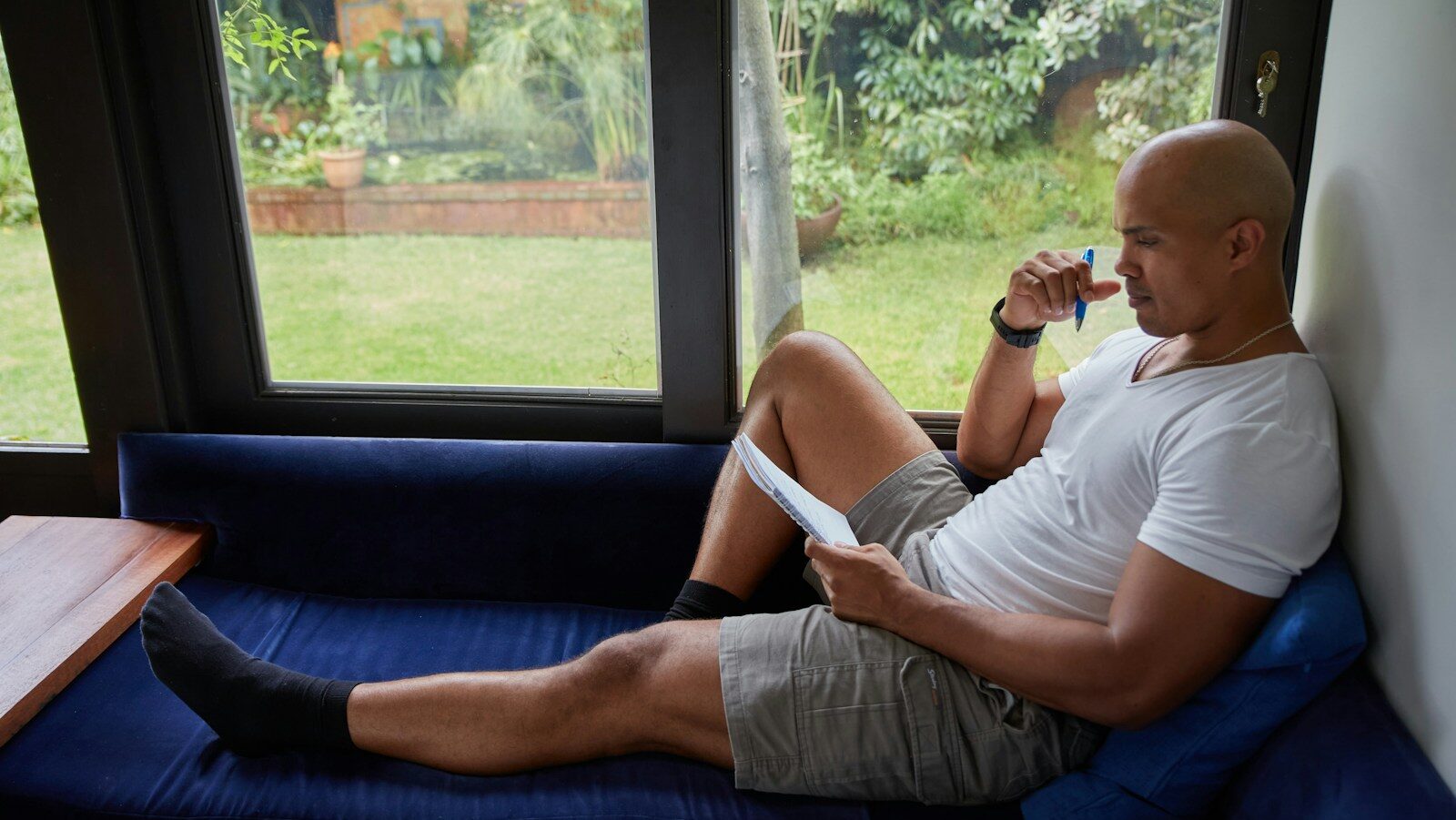Wellness beyond the office: Workplace well-being can promote societal and planetary health
What if improving workplace well-being created a ripple effect beyond the office? Coaches can help clients understand how prioritizing workplace well-being can lead to deeper relationships, stronger communities, and a healthier planet.
Challenge:
Despite increased investment in workplace wellness programs, only a fraction of employees utilize these services
Opportunity:
Coaches can help organizations communicate the value of well-being and create a culture that enables well-being for all
Impact:
Addressing structural barriers to workplace well-being programs empowers individuals to thrive both at work and in their communities
Wisdom Weavers
Overcoming low employee engagement begins with establishing a new, more inclusive well-being culture
In the ever-evolving landscape of corporate culture, the traditional approach to workplace well-being is undergoing a transformation. Beyond the standard offerings like on-site gyms and mindfulness seminars lies an untapped potential that extends far beyond the office walls. The challenge lies in disrupting norms to establish a new culture of workplace well-being that transcends individual benefit and contributes to broader societal and planetary well-being.
Amid the backdrop of global challenges such as Covid-19, economic instability, and geopolitical tensions, a quiet but pervasive issue has emerged — low employee engagement. The ramifications of disengagement are not only financial but also affect individual well-being across physical, emotional, financial, parental, and social dimensions. Recognizing this, employers increasingly acknowledge the need for a more comprehensive and holistic approach to workplace well-being.
Holistic approaches to workplace well-being
Wisdom Weaver Réka Deàk, a well-being designer and leadership coach, highlights the urgency to move beyond fragmented well-being initiatives. In her words, “There is quiet quitting, poor engagement, and employers are starting to take the financial measures of these things seriously.” Réka affirms that the accelerated interest in mental health is commendable, but well-being encompasses a spectrum that demands attention to multiple facets. Workplace well-being is not a standalone concept but an interconnected web of physical, emotional, financial, parental, and social well-being.
Disrupting traditional workplace norms is the first step in overcoming low employee engagement. Réka advocates for a shift from sporadic well-being initiatives like one-off webinars to adopt a more personalized and sustained approach. The focus shifts from merely teaching well-being to actively fostering a culture that supports and sustains well-being practices. This involves offering choices and providing guidance to help individuals navigate the plethora of options.
Réka further emphasizes the importance of transforming well-being into both an individual and community practice. In this collective journey, individuals support each other, creating a sense of communal well-being. However, this paradigm shift requires more than just individual commitment; leadership must set the tone and model well-being practices. Creating supportive spaces for these practices, even amid organizational changes, is vital to making well-being a priority.
The new, disruptive approach to workplace well-being not only addresses individual needs but also establishes deeper social connections, strengthens local economies, and contributes to greater environmental health. By breaking away from conventional norms and fostering a holistic well-being culture, organizations can overcome the challenges of low employee engagement, paving the way for a more vibrant and thriving workplace.
Strengthening the relationship between self-care, pro-social, and pro-environmental behaviors enhances workplace well-being
In today’s fast-paced environment, the glorification of busyness often takes a toll on individuals’ well-being. Wisdom Weaver and climate change coach Charly Cox aptly points out, “Modern work glorifies being busy and stressed. Life is so crunched.” The demands of work, coupled with personal responsibilities, leave individuals feeling frazzled and exhausted. According to Charly, the busyness culture not only affects mental health but also hinders societal progress: “We have filled our lives so full, which in itself does not do us mentally any good. We feel frazzled. We feel tired. We take antidepressants. As a result, we then do not have space to do the things that will actually move society on in meaningful ways.”
Reducing the workweek emerges as a powerful solution to break free from the perpetual cycle of busyness. As Charly suggests, a shorter workweek allows individuals to strengthen social connections, support local businesses, and engage in meaningful caregiving relationships. The benefits extend beyond personal well-being; a reduced workweek contributes to a more sustainable and interconnected society.
Flexible scheduling plays a pivotal role in fostering self-care, pro-social, and pro-environmental behaviors. Freedom to schedule according to life’s movements provides employees with the time to rest, nurture social connections, and balance caregiving roles. For Charly, equity in scheduling ensures inclusivity, accommodating diverse employee demographics and caregiving priorities. This inclusivity allows for the flexibility needed to attend to various caregiving priorities, such as appointments for dependents and school pick-ups.
Charly further emphasizes the human and workplace well-being dimensions of climate change; addressing this global challenge requires a shift not just in environmental practices but in the well-being of individuals. Charly highlights, “If you just go to a four-day week, people make more pro-environmental choices.” During a shorter workweek or a remote-work setup, the newfound time and space in individuals’ lives facilitate pro-environmental behaviors — such as shopping locally and reducing commuter pollution — counteracting the mindless consumption driven by busyness.
Of further benefit, the concept of a 30-hour workweek spread over five days aligns with the school system in most countries. Beyond being a practical solution, it has the potential to contribute to greater equity in the workplace and foster deeper family connections. As organizations recognize the value of such practices, they gain a competitive edge in attracting top talent with diverse abilities and responsibilities.
The delicate interplay among self-care, pro-social behaviors, and environmental consciousness is pivotal in enhancing workplace well-being. Embracing a paradigm shift towards shorter workweeks and flexible scheduling rejuvenates individuals and lays the foundation for a more socially responsible and environmentally conscious workplace well-being culture.
Emerging well-being economies and government well-being programs help foster human sustainability
In the pursuit of human sustainability, the well-being movement has evolved beyond its initial focus on workplace well-being. Wisdom Weaver Noof Aljneibi, who works for the United Arab Emirates Ministry of Community Development, sheds light on the transformative role of the National Program for Happiness and Well-being. “When the whole well-being movement started, the initial focus was well-being at the workplace.” This evolution is not just confined to individual organizations; it extends to a national level, transforming public spaces and community programs to support well-being for all.
In the UAE, individuals are appointed as Chief Officers for Happiness and Well-Being in organizations, forming a crucial link between the government and workplaces. These appointed individuals are not only tasked with fostering well-being within their organizations but also with aligning these practices with cultural traditions to form well-being economies. The concept of family cohesion has undergone a notable shift, with the government actively working to preserve it through workforce initiatives.
Noof highlights one noteworthy initiative in Abu Dhabi: the establishment of family-friendly workplaces. She explains that these initiatives go beyond the workplace to encourage parents to spend more quality time with their children and extended families, including uncles, aunties, and grandparents. The solutions implemented include flexible schedules that allow parents to personally drop off and pick up their children from school, demonstrating a commitment to family values and relationships.
“Like in other countries, the initial focus of the UAE well-being initiative was on the workplace. Now, the government is expanding well-being programs to preserve family cohesion through workplace initiatives.”

Recognizing cultural and religious traditions is integral to these initiatives. Noof points out that in an Islamic country like the UAE, half workdays on Fridays align with the local schedule and cultural practices. This allows workers to share a family meal on Fridays, aligning with religious and cultural traditions and fostering a sense of community and connection.
Government programs aimed to support public well-being and establish well-being economies represent paradigm shift in how societies approach human sustainability. These initiatives recognize the interconnectedness of workplace well-being with greater workplace culture and broader societal values. By bridging the gap between government policies and workplace practices, emerging well-being leaders play a pivotal role in fostering a culture of sustainability that goes beyond individual organizations to encompass the fabric of society itself. As societies begin to apply these approaches, they set a precedent for integrating workplace well-being — and well-being overall — into the core of human sustainability efforts globally.
A Call to Action for Coaches
Coaches can ignite transformative conversations within organizations, envisioning how workplace well-being can extend its influence beyond individual employees. In executive sessions or team coaching endeavors, coaches can facilitate discussions that explore the impact of well-being on employees, their families, local communities, and the environment. This broader perspective, when embraced, has the potential to reshape workplace cultures. Coaches, particularly when working with social impact entrepreneurs, play a crucial role in linking self-care and workplace well-being to broader social and environmental impacts. Their guidance can steer organizations toward a holistic understanding of well-being that goes beyond individual health, creating a ripple effect that resonates through personal lives, relationships, communities, and the planet.
Transformational questions:
- How can disrupting workplace norms lead to deeper social connections, strengthened local economies, and greater environmental health?
- How does a reduced workweek enable employees to prioritize self-care, strengthen social connections, and support local businesses?
- In what ways can flexible scheduling facilitate rest, social connections, and caregiving responsibilities?
- How do emerging wellness roles and innovations, such as well-being ministers and wellness economies, promote human sustainability?
- How can organizations leverage technology and digital platforms to enhance workplace well-being and promote a healthier work-life balance?
- In what ways can workplace well-being initiatives be tailored to accommodate diverse cultural backgrounds and individual preferences, fostering inclusivity and belonging?
Dive into more resources on workplace well-being beyond the office:
- Read this Deloitte article on taking action to address the decline in workplace well-being
- Learn more about the benefits of well-being economies
- Browse policy references in the Global Happiness Council Policy Report
- Learn more on how Gallup is measuring workplace well-being
- Explore futures thinking on new government positions to support collective well-being from the Global Wellness Institute






